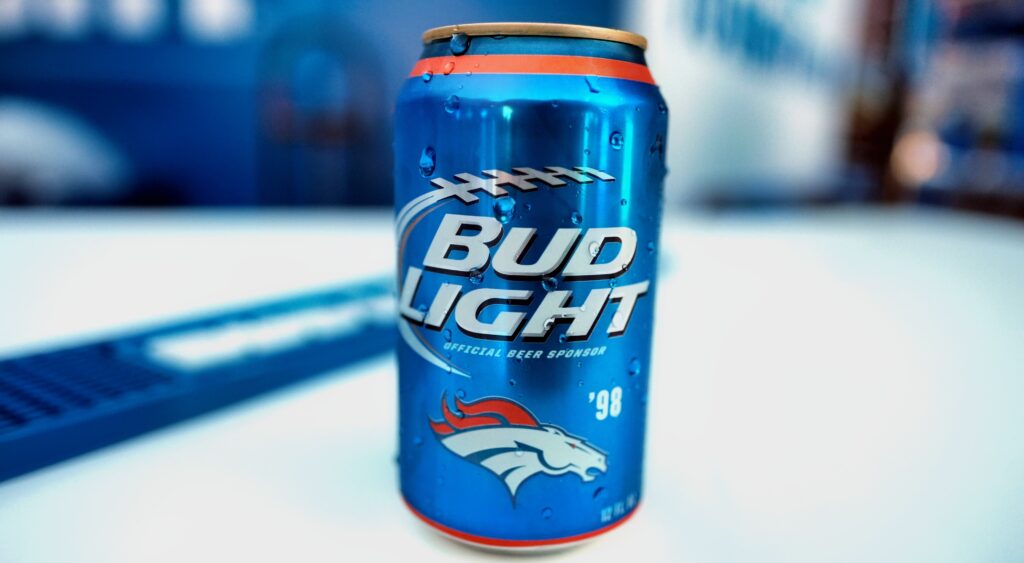
Bud Light could’ve never imagined falling so hard in the ranks of beers over their major controversy. It all started when Transgender activist and influencer Dylan Mulvaney was announced as a Bud Light spokesperson to promote the March Madness basketball tournament in April, which has caused a heavy backlash that has lasted for months.
The company is trying desperately to win back conservatives with a new ad featuring Kansas City Chiefs star Travis Kelce but it does not appear it will work out how they think.
What is making matters worse for them is that things are slated to get even worse with the approaching 2023 NFL season.
This week, BMO Capital Markets analyst Andrew Strelzik stated that Bud Light could see major “disruptions” this fall because retailers and distributors may hesitate to stock the company’s product.
Yahoo Finance really put the downfall of Bud Light into perspective:
“Anheuser-Busch InBev’s Bud Light sales plunged 27.9% for the week ending June 24 per new Nielsen data. That’s a faster pace than the week-on-week drop of 28.5% for the period ending June 17.
Volumes, meanwhile, cratered 31.3% from the prior week compared to a 31.1% decline the week before.”
Last week, Anheuser-Busch US CEO Brendan Whitworth dodged a question regarding whether the promotion with Mulvaney was a “mistake” or not.
Click on ‘Follow Us’ and get notified of the most viral NFL stories via Google! Follow Us
“For us, what we need to deeply understand and appreciate is the consumer and what they want, what they care about, and what they expect from big brands,” Whitworth told CBS.
As a result of their actions, Bud Light has been supplanted by Mexican import Modelo Especial as the top beer in America, and Whitworth said Anheuser-Busch has since tripled its spending on Bud Light advertising.
Weeks after their partnership with Mulvaney broke, Anheuser Busch tried desperately to issue a pro-America Budweiser advertisement that featured the brand’s famous Clydesdale horses walking through New York City and Washington, D.C. as well as small-town America and rural farmland. Unfortunately for them, the damage had already been done.
Once the most popular beer in the U.S. likely will never regain that top spot ever again.























